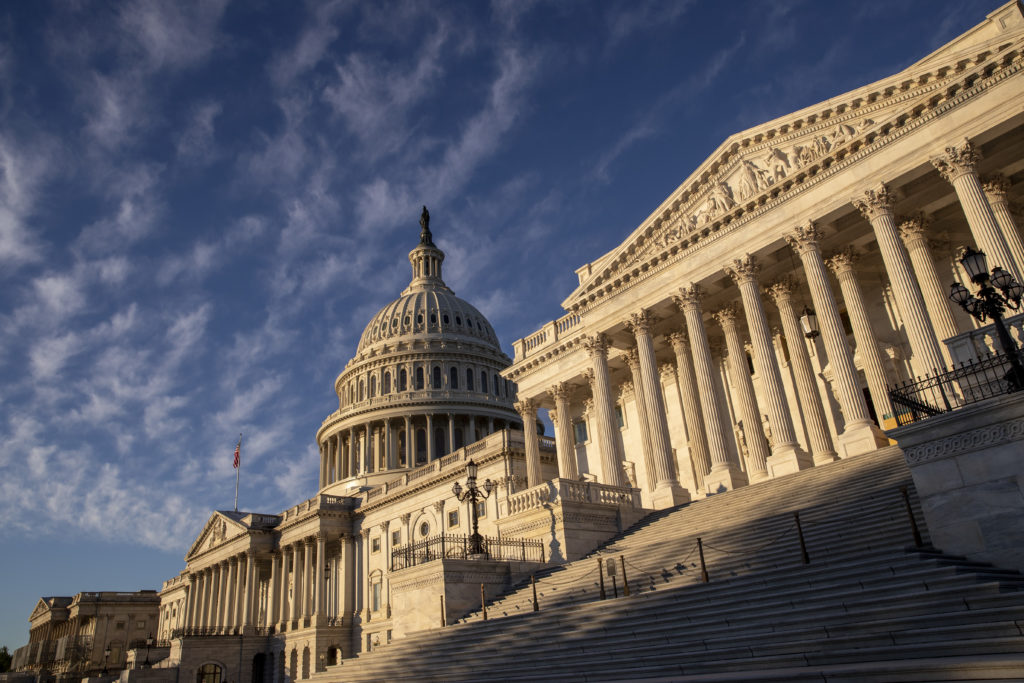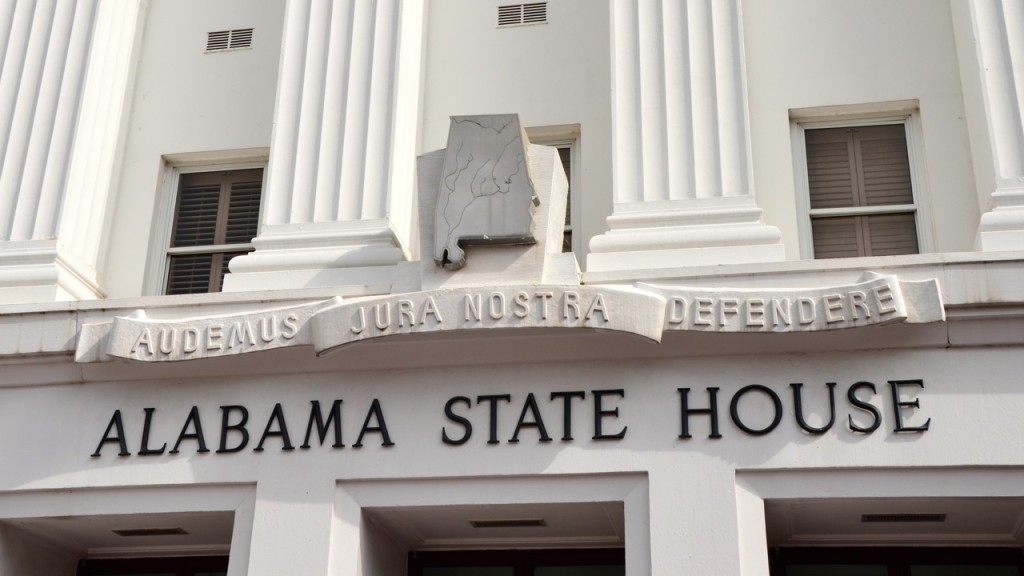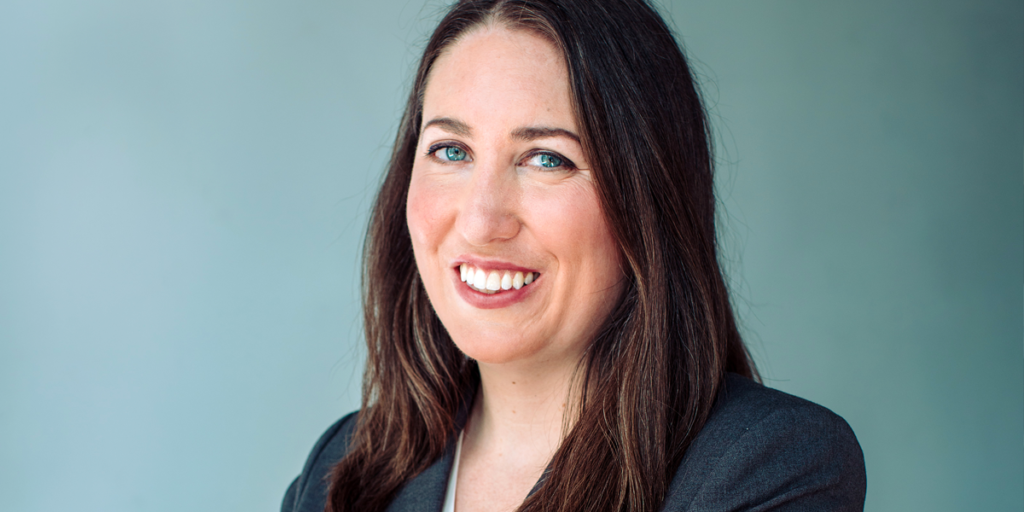Jim Carnes: Underfunding of public health has devastated Alabama in our time of need

This is what happens when state budgets continually shortchange essential services. The rocky start to Alabama’s COVID-19 vaccination rollout has many causes that officials and observers alike have identified. They include lack of federal coordination, uncertain vaccine supply, complex technical requirements for early vaccines, and the need to keep second doses in reserve. These factors are beyond the state’s control. But a crucial cause that has garnered less attention falls squarely on state lawmakers: Alabama has failed to create and maintain a disaster-ready public health infrastructure. In better times than these, a well-staffed health department network might look like a luxury to budget writers. It might seem tempting to reduce payrolls and eliminate “feel-good” services. But it’s a penny-wise and pound-foolish choice. Two basic truths weigh against such a shortsighted approach. The first is that Alabama consistently ranks at or near the bottom among states on a wide range of health measures, including maternal and infant mortality. The second is that ongoing emergency preparedness and response is a fundamental part of public health’s mission. COVID-19’s heavy toll on Alabamians of color is teaching us that these two truths are intertwined. Chronic health problems resulting from unequal access to care can make a health crisis even worse. The Alabama Department of Public Health (ADPH) is facing its biggest challenge in memory – after years of budget cuts have steadily reduced its capacity. In 2019, the district and county health departments administered by the state were operating at only 65% of the professional capacity they had in 2010. Today, 35 county health departments have either one nurse or none at all on staff. Coosa County’s health department closed entirely in 2016. (Health departments in Jefferson and Mobile counties are locally controlled.) Another disturbing consequence of shortchanging public health is the sparsity of our COVID-19 vaccination data. Alabama needs more infrastructure and personnel to gather and report daily county-level vaccine distribution and demographic impact by race and age. Mississippi is providing those numbers, and our state should, too. The data needs don’t end there. Alabama and Idaho are the only two states without a statewide database requiring all hospitals to report real-time data on multiple health conditions, services, and outcomes. As a result, we lack the capacity that neighboring states have to analyze access to care, quality of care, patient safety, and other factors that could help us make Alabama healthier. Such a database also would allow Alabama to make longer-term assessments of racial health disparities, medical treatment effectiveness, health care inflation, and use of health services by special populations. Despite its underfunding, ADPH did a commendable job in vaccination planning. The priority groups it identified reflect a science-based assessment of risk of exposure and risk of death. Phase 1a targets health care workers, who are at highest risk of exposure, and nursing home residents, who statistically are at highest risk of death. The remaining priority groups follow a gradient of those same risks. We know from grim statistics that COVID-19 risks do not fall evenly across racial, ethnic, and socioeconomic groups. People of color make up a disproportionate share of the front-line workers who keep our communities going, often at low pay. Black and Hispanic Alabamians, on average, also face more barriers to health care than white residents and thus have higher rates of chronic conditions that increase the risk of COVID-19 complications. By quickly vaccinating people in ADPH’s prescribed order, Alabama can reduce COVID-19’s death toll and ensure more equitable protections and outcomes. But if officials abandon the priority system, our state likely will see more virus deaths and an even harsher burden on marginalized Alabamians. Fulfilling Alabama’s vaccination target goals will require levels of personnel, data management, communications, and community engagement that ADPH alone simply does not have. For now, it’s up to elected officials, along with private and nonprofit partners, to bridge those gaps as best they can. For the future, it’s up to all of us to demand more responsible upkeep of the common good. Jim Carnes is policy director of Alabama Arise, a nonprofit, nonpartisan coalition of congregations, organizations, and individuals promoting public policies to improve the lives of Alabamians with low incomes. Email: jim@alarise.org.
Jim Carnes: Why Alabama Arise supports Amendment 4

It’s past time for Alabama to tear down the policy legacies of slavery and segregation. And Alabamians can take an important step in that direction this fall by voting yes on Amendment 4. Alabama Arise favors an overhaul of the racist 1901 constitution, so adding new amendments is not something we take lightly. But Amendment 4 would improve the constitution by authorizing the Legislature to “recompile,” or clean up and reorganize, the document in certain limited ways during the 2022 regular session. Most importantly, Amendment 4 would allow the Legislature to remove racist language from the constitution. Examples of these provisions include references to separate schools for Black and white children and the prohibition of interracial marriages. This change would address one of the constitution’s original sins: its authors’ explicit intent to establish white supremacy in Alabama. Amendment 4 would make other structural changes to the constitution as well. It would remove language that is repetitive or no longer applies. It would consolidate amendments related to economic development. And it would group local amendments by the county to which they apply. How Amendment 4 differs from previous efforts Two other efforts to modernize the constitution and remove racist language have lost statewide votes in recent years. In 2004, voters rejected a proposed amendment that also would have removed language saying Alabama children had no right to a publicly funded education. Some conservatives feared that change could force lawmakers to increase taxes and boost public school funding. In 2012, Alabamians voted against another proposed amendment that many Black lawmakers opposed. The legislators cited concerns that it could undermine education funding and would not remove all racist language from the constitution. This year’s amendment would allow the Legislature to identify racist language for removal. Voters still would have the final say on whether to approve the new revision of the constitution. Rep. Merika Coleman, D-Birmingham, sponsored the amendment, which the Legislature approved unanimously in 2019 for a public vote this year. Coleman worked as an Arise policy analyst before she was elected to the House. Republished with permission of Alabama Rise. You can read more details in the full blog post here. Jim Carnes is Arise’s policy director. He grew up in Columbus, Miss., and graduated from the University of North Carolina. He worked as the communications director before becoming policy director in 2013.
Alabamians react to temporary shutdown deal

A deal was reached Friday which will open the government for three weeks while negotiations continue. Reactions came in from around the state. Here’s what Alabama politicians and groups are saying: Republican Congressman Mo Brooks: This shutdown has lasted far too long. The shutdown has hurt America, Alabama, the Tennessee Valley, and my own family because of its furloughs and no pay for work done. “Illegal aliens and America’s porous southern border cause, at a minimum, 50 deaths on American soil every single day,” Brooks added, “It is fantastic that Democrats recognize the twin evils of shutdowns and the carnage caused by illegal aliens and America’s porous southern border,” he continued, “I look forward to negotiating with Democrats to save American lives by beefing up our border security, building the required border barrier, and preventing yet another avoidable, economically damaging shutdown over border security funding disputes.” Alabama Arise executive director Robyn Hyden: The pain from this unnecessary shutdown has grown by the day. Fortunately, this deal will reopen the federal government without causing further damage to struggling people. We thank all the everyday Alabamians who demanded an end to this harmful shutdown. Our country can’t afford to end up back in this shameful situation a few weeks from now. And we can’t afford to leave millions of Americans at greater risk for hunger, homelessness and hardship. Lawmakers must reach a long-term funding deal that protects SNAP, WIC and other vital nutrition assistance and rental assistance programs. And they should do it without seeking other policies that would hurt people who struggle to make ends meet. Republican Congressman Richard Shelby: I commend the President for his continued willingness to negotiate and find a way to reopen the government. The Democrats have stated that once the government was reopened, they would be willing to negotiate in good faith on significant investments in border security, including a physical barrier. As a member of the Homeland Security conference committee, I hope that this continuing resolution will provide us the time to work out our differences in a fair and thoughtful manner and reach a bipartisan consensus on border security. Congresswoman Terri Sewell (7th District- Democrat): For the past 34 days, President Trump’s government shutdown has caused undue financial hardship on thousands of federal workers in my district and across the country while inflicting needless chaos and pain in the lives of all Americans. I am encouraged that the President finally agreed to re-open government today and to allow the process of negotiating funding bills to work. To be clear, it is never a good idea to shutdown government over policy disagreements. The American people deserve better from their elected officials. I look forward to working with my colleagues on both sides of the aisle on passing long-term funding bills that reflect our shared values, respect our workers and invest in smart, effective border security measures. *This article will be updated as more reactions come in.
New law could help thousands qualify for Alabama hardship driver’s license

The Alabama Law Enforcement Agency has begun accepting applications to restore limited driving privileges to thousands who lost their licenses due to issues not related to safety thanks to a new law that just went into effect. Senate Bill 55, which passed during the 2018 session was sponsored by Senator Clyde Chambless and signed into law by Governor Kay Ivey, and will allow applicants will be able to apply for a “hardship license.” According to a Fact Sheet in support of the bill created by Alabama ARISE, “This bill would allow people who need to take their children to school, go to the doctor, or help family members see a doctor to do so without breaking the law. SB 55 is a reasonable, common-sense response to a problem that hurts thousands of Alabamians every year.” “We’re certain this could help tens of thousands of people,” Dev Wakeley, a policy analyst for ARISE told the Montgomery Advertiser, “This is a huge step that will help so many people.” According to the application, which is available on the ALEA website, the following information is required for consideration: List of anticipated places applicant will travel (work, home, church, etc.) and address of each Documentation for all anticipated routes applicant will travel (using Google Maps, MapQuest, etc.) List of anticipated times of travel (in relation to work shifts, religious ceremony times, etc.) List and description of all specific vehicles applicant may use (including the Owner, if not Applicant, Make, Model, Tag No.); PROOF OF MANDATORY LIABILITY INSURANCE SHALL BE PROVIDED FOR EACH VEHICLE Supporters said that the law was needed because suspensions disproportionately burdened the poor. Callie Greer, a community activist in Selma, told the Advertiser, “You could never pay your way out of the situation. It was a no-win situation. It’s like they’re throwing dirt on you while you’re trying to climb out of this hole.” Previously, hardship licenses were only available to people on work release or with administrative supervision, according to a report by WSFA.
High uninsured rates plague Alabama’s rural areas, new report shows

Alabama’s small towns and rural areas have among the highest rates of uninsured low-income adult citizens in the country, and residents there are more likely to be uninsured than those in metro areas, according to a new report by Georgetown University’s Center for Children and Families (CCF) and the University of North Carolina’s NC Rural Health Research Program. The uninsured rate for Alabama adults with low incomes is 36 percent in rural communities and small towns, and 29 percent in metro areas. Both rates are much higher than the national averages of 26 percent for rural areas and 18 percent for metro areas. In rural areas and small towns across Alabama, the report unveiled that the uninsured rate for low-income adults has grown stagnant — it has remained virtually unchanged between 2008-09 and 2015-16. Medicaid and the uninsured Alabama Arise — a nonprofit, nonpartisan coalition of congregations, organizations and individuals promoting public policies to improve the lives of low-income Alabamians — believe this number could look even worse in Alabama if the Medicaid “work requirement” plan that Alabama submitted for federal approval goes through. They say it would drive the uninsured rate even higher by stripping Medicaid coverage from thousands of parents in poverty. The proposal would require 35 hours of work, job training, education or volunteer service each week. Exceptions would be made for people with young or disabled children. State officials says the proposal only impacts a small number of Medicaid recipients, able-bodied parents and caretakers who qualify because their income is less than 18 percent of the federal poverty level. Most Medicaid beneficiaries in the state are children, disabled or elderly. But Alabama Arise disagrees — they believe, virtually all of those parents would be left with no realistic alternative for affordable coverage. “Not only has Alabama failed to move forward on health coverage, but now our state is seeking to move backward by leaving even more people uninsured,” said Alabama Arise policy director Jim Carnes. “Alabama should drop its cruel efforts to punish people living in poverty and focus instead on expanding Medicaid so all Alabamians can get the care they need to become and stay healthy. Medicaid expansion would save hundreds of lives, create thousands of jobs and keep rural hospitals and clinics open to serve residents across our state.” According to the report, nationally, the uninsured rate for low-income adults fell by more than half – from 35 percent to 16 percent – in rural areas and small towns in states that expanded Medicaid. For states that have not expanded, the decline was much smaller: from 38 percent to 32 percent. “Medicaid expansion would reduce the uninsured rate for residents across the entire state; however, the most dramatic improvement likely would be felt in small towns and rural areas of Alabama,” Georgetown CCF executive director Joan Alker explained. “Improved coverage rates typically translate to a more stable health care system and help rural areas and small towns maintain availability of health care providers in areas where shortages are all too common. Access to rural health providers is especially important to women of child-bearing age and those with chronic conditions like asthma.” In July 2018, 10 of the 11 Alabama counties with the highest unemployment rates were rural counties.
Alabama Arise sets list of 2019 priorities including Medicaid expansion, end to grocery tax

Alabama Arise – a nonprofit, nonpartisan coalition of congregations, organizations and individuals promoting public policies to improve the lives of low-income Alabamians – is already planning ahead for 2019. The organization set their 2019 legislative priorities at its annual meeting Saturday in Montgomery, Ala. More than 200 Arise members picked the organization’s issue priorities, which include Medicaid expansion and legislation to end the state sales tax among the top goals for 2019. “Public policy barriers block the path to real opportunity and justice for far too many Alabamians,” Alabama Arise executive director Robyn Hyden said. “We’re excited to unveil our 2019 blueprint to build a more just, inclusive state and make it easier for all families to make ends meet.” The seven issues chosen were: Tax reform, including untaxing groceries and closing corporate income tax loopholes. Adequate funding for vital services like education, health care and child care, including approval of new tax revenue to protect and expand Medicaid. State funding for the newly created Public Transportation Trust Fund. Consumer protections to limit high-interest payday loans and auto title loans in Alabama. Legislation to establish automatic universal voter registration in Alabama. Reforms to Alabama’s criminal justice debt policies, including changes related to cash bail and civil asset forfeiture. Reforms to Alabama’s death penalty system, including a moratorium on executions.
Alabama Arise to host a listening session on Medicaid, other policy solutions

Alabama Arise, a grassroots group aimed at protecting low-income families from harmful state policies, plans to host a listening session next week in Andalusia. During the session, Arise representatives plan to discuss several healthcare related topics, including improving healthcare within the state, discussions on Medicaid, and pay-day lending. The Covington County Grassroots Alliance joins Arise in co-sponsoring the event. Local organizer Steve Hubbard hopes at least 100 people will attend. “There is a real issue with healthcare in the state and I hope people will come listen and speak out,” Hubbard told the Andalusia Star-News. “A number of counties in Alabama have seen rural hospitals closed within the last 12 months. Camden has closed its hospital doors and there has been a significant impact on lower-income healthcare because of it. I hope that healthcare professionals will also come to the listening session, because there has to be a concern about how this is affecting healthcare providers.” This week, the Alabama Medicaid Agency opened a new public comment period on the proposed Medicaid work requirement. The proposal would only apply to “able-bodied” Parent or Caretaker Relative (POCR) recipients — with exemptions being made for people with disabilities, anyone who pregnant or receiving postpartum care, anyone required to care for a disabled child or adult, among others — that will require unemployed or underemployed adults to become gainfully employed, or participate in training opportunities to enhance their potential for full employment. Alabama Arise have been opponents of the Medicaid work requirement since the proposal’s beginnings and will no doubt discuss it at the meeting. “Alabama Medicaid’s work requirement proposal would create a no-win situation for thousands of parents living in deep poverty. They’ll lose health coverage if they don’t get a job – and if they do,” Arise Citizens’ Policy Project policy director Jim Carnes said in a press release. “Any way you look at it, this proposal is nothing more than an expensive plan for denying health coverage to parents in deep poverty. Instead of punishing struggling families, our leaders need a vision for a healthier Alabama. We urge Gov. Ivey to save tax dollars, cut red tape and save lives by withdrawing this misguided plan.” The Alabama Arise listening session will begin at 6 p.m. on August 14, at the Andalusia City Hall Auditorium.
Democratic gubernatorial candidates answer questions on housing, lending, transportation, taxes

Alabama Arise — a nonprofit, nonpartisan coalition of congregations, organizations and individuals promoting public policies to improve the lives of low-income Alabamians —reached out to the 2018 gubernatorial candidates to seek their thoughts on policies that affect low-income people in Alabama. They received replies from three candidates, all Democrats: Sue Bell Cobb, James Fields and Walt Maddox to questions about housing, payday lending, transportation and taxes. Here are the questions and candidates’ responses: Q: The Legislature has now created the infrastructure for both an Alabama Housing Trust Fund and an Alabama Public Transportation Trust Fund. Would you commit to providing funding for these trust funds? If not, how do you propose to address the lack of affordable housing and transportation, especially in rural areas? Sue Bell Cobb: Without reliable, substantive streams of revenue, neither the Alabama Housing Trust Fund nor the Alabama Public Transportation Trust Fund will be able to get off the ground. I am glad that the legislature has laid the groundwork for these funds, and the programs they could support have the potential to be transformational for quality of life in Alabama. I am absolutely committed to finding dependable streams of revenue that we can use to address both of these issues. In order for Alabama to have a healthy, productive workforce, they need a safe roof over their head and a stable method of transportation to and from work. James Fields: I will certainly commit to funding both. There can be no ‘trust funds’ without funding. Sources of revenue for housing have been identified including the deed record tax, unclaimed property funds, the 2012 national mortgage settlement. I support legislation to utilize these resources as well as others. I support development of public transportation, including high speed rail. The administrative tools made available by the Act must identify systems that can meet the needs of all, rural & urban, ensuring effective ridership and utilization, as well as related state revenue. Transportation related taxes must match today’s needs. Walt Maddox: Lack of housing and public transportation are persistent problems that must be addressed because, among other things, they contribute to chronic unemployment and underemployment. Helping people find and keep jobs is one of the most successful ways to eliminate poverty. I will reach across aisles and across the state to find agreement on ways to fund these programs. Q: Alabama law allows payday lenders to impose fees that add up to an Annual Percentage Rate (APR) as high as 456 percent. Would you favor extending the repayment period on payday loans in Alabama from the current 14 days to 30 days, effectively cutting their APR in half (from 456 percent APR to 213 percent)? Sue Bell Cobb: I am absolutely in favor of lengthening the repayment period to 30 days. I am also in favor of capping APR for small, short-term loans. We have far too many Alabamians trapped in a cycle of crushing debt thanks to predatory lending institutions that drain our local communities, and particularly our neighbors at or near the poverty line. Many of these companies siphon precious resources out of Alabama and funnel them into corporate pockets out of state. Not only does this extraction of resources have a deleterious economic impact on our state and our communities, the ballooning interest on these loans has a devastating human cost for children and families. James Fields: I absolutely support extending the repayment period and additional legislation which prevents those who must utilize these services from being caught in an ever-increasing accumulation of interest debt. I will continue to research strategies to accomplish this. Of course, accessible small short-term loans by banks would add competition, the possibly the most effective regulator for this industry. Walt Maddox: By attaching outrageous interest rates to easy to obtain loans, predatory lending creates vicious cycles that can make desperate people even more desperate. I am open and committed to looking at various ways to protect vulnerable populations from such practices. Q: Alabama is one of three states that give no state tax break on groceries, and we have the highest income tax in the nation for a family of four at the poverty line. In most states, this family would not pay income tax at all. How would you change Alabama’s upside-down tax system? Sue Bell Cobb: The first step to making Alabama’s tax system fairer is to remove the tax on groceries because Alabamians should not pay tax on something as essential as food. To accomplish this, we must replace that lost revenue. A politically feasible solution would be to work for passage of a flat state income tax, eliminate deductions for the wealthy, and add an exemption for anyone at or below the federal poverty line. I also believe that Alabama’s income tax should be calculated based on federal taxable income instead of adjusted gross income. James Fields: Clearly, the legislature, a majority of whom answer only those who fund their campaigns, cannot accomplish tax reform. I would establish a non-partisan Fair Tax Commission, tasked with righting the current upside-down system, including but not limited to addressing equitable taxes on real property, repeal of the ‘current use’ law, raising the threshold of taxable income, eliminating the tax on food, and revising deductions which favor those most able to pay, including corporations. Its work and any enabling legislation must be clearly and transparently presented and explained to the people to counter the certain opposition. Walt Maddox: I support eliminating the state sales tax on groceries. But to do so we must offset the lost revenues with another source. One idea is to eliminate the state deduction for federal income taxes, which would require a constitutional amendment to be voted on by the people. We also must find a way to amend the tax structure so that people living below the poverty line do not pay income taxes.
Jim Carnes: Expanding Medicaid would improve Alabama’s health, budgets and economy

Imagine being an Alabama leader and having a tool at your disposal that could help families, strengthen the workforce, save rural hospitals, fight opioid addiction, improve the state’s health status and grow the economy. The only catch: It was created by members of another political party. That’s the dilemma that has kept Alabama from expanding Medicaid for the last eight years. We’re a different country now than we were in 2010, when a Democratic Congress passed and President Barack Obama signed the Affordable Care Act (ACA), making Medicaid expansion possible. With so much water under the bridge – and the ACA still standing – maybe it’s time to seize one of the law’s more durable provisions and take credit for the good it brings. A new Urban Institute study offers a fresh look at just how much Alabama stands to gain from closing the coverage gap for low-income adults. The ACA created two major new avenues for affordable health coverage. First, states would raise their income limits on Medicaid to make coverage available to adults earning up to 138 percent of the federal poverty level ($28,676 a year for a family of three). And second, the Health Insurance Marketplace would offer discounted premiums for private coverage to people with incomes above the poverty level ($20,780 for a family of three). With expansion, each state would be responsible for a small fraction of associated costs, topping out at 10 percent in 2020, with the federal government paying the rest. Even after a 2012 U.S. Supreme Court ruling declared that Medicaid expansion was optional for states, 31 states and the District of Columbia seized the opportunity to improve lives, improve communities and improve their budgets for a dime on the dollar. But Alabama and 18 others have stayed behind. Hundreds of thousands of uninsured Alabama workers are paying the price for that inaction. Under the state’s current rules, adults under age 65 and without a disability can receive Medicaid coverage only if they have a dependent child and earn less than 18 percent of the poverty level ($3,744 a year for a family of three). In other words, it’s impossible to work a minimum-wage job and receive Medicaid in Alabama. The flip side of this predicament is that coverage remains unaffordable for low-wage Alabama workers who don’t have employer health plans and don’t earn enough to qualify for Marketplace subsidies. This coverage gap is exactly the problem Medicaid expansion is designed to solve. The new Urban Institute report estimates that 314,000 Alabamians would enroll in Medicaid if Alabama extended eligibility to low-income workers. That would mean an additional $1.54 billion in federal funding surging into Alabama’s economy each year under the 9-to-1 federal match rate. It also would mean rural hospitals – like the one in Jacksonville that announced in May that it plans to close – would no longer be bleeding red ink through services to uninsured patients. Expanding Medicaid would strengthen our state’s budgets as well. Expansion would increase Alabama’s Medicaid enrollment by 33.8 percent, but the increase in state costs would be just 5.7 percent, according to the Urban Institute. That translates to $97 million more in state Medicaid funding each year. That increase would be more than offset by savings in mental health care, corrections and other services – not to mention the gains from fewer uncontrolled chronic illnesses, fewer premature births and improved worker productivity. A 2017 report in Health Affairs found “no significant increases in spending from state funds as a result of the expansion” in any of the states that expanded Medicaid. For Montana – which has less than a quarter of Alabama’s population – another study identified between $350 million and $400 million in new economic activity resulting from Medicaid expansion, supporting 5,000 jobs and $280 million in personal income each year. In any other industry, the prospect of such gains would have political candidates of all stripes blowing trumpets and leading parades. And those other economic development plans wouldn’t have the added advantage that this one brings: giving people a new lease on life by helping them get the health care they need. Isn’t it time we broke the partisan gridlock on the coverage gap? Isn’t it time we demanded that anyone seeking to lead our state offer a vision of a healthier Alabama – and a path to getting there? ••• Jim Carnes is policy director of Alabama Arise, a nonprofit, nonpartisan coalition of congregations, organizations and individuals promoting public policies to improve the lives of low-income Alabamians. Email: jim@alarise.org.
Personnel note: Robyn Hyden named Executive Director of Alabama Arise

Alabama Arise — a nonprofit, nonpartisan coalition of congregations, organizations and individuals promoting public policies to improve the lives of low-income Alabamians — on Wednesday announced Robyn Hyden would be its new Executive Director. Hyden will replace Kimble Forrister, who is retiring next month after 27 years as the organization’s Executive Director. She will join Arise from the United Way of Central Alabama, where she has served as director of grants management in the Department of Community Initiatives since 2017. Previously, Hyden worked as a North Alabama organizer for Arise and directed development and communications efforts at the Birmingham-based nonprofits Urban Ministry and Alabama Possible. She holds a Bachelor of Arts degree in anthropology from Vanderbilt University. Arise Board President Cindy Lowry praised Hyden’s track record in fundraising and organizing and touted her relationships with civic organizations and faith-based groups across Alabama. “Robyn has what we believe to be the right attributes – passion, commitment and professionalism – to lead this organization into the future,” said Lowry. “As a former organizer for Arise, she knows the organization very well and has a vision that will build on our history and strengths. Through her words and actions, we know she is fully committed to Arise and our mission.” “Alabama Arise’s members are our state’s most outspoken advocates for dignity, justice and power for people in poverty,” Hyden said. “Arise is at the forefront of organizing grassroots advocacy, holding elected officials accountable and producing trusted policy analysis – work that is now more important than ever. I am honored and humbled to carry this work forward with Arise’s amazing staff, members and board.” Forrister, Arise’s outgoing director, also offered praise for Hyden. “Robyn brings just what Arise needs: a vision for where we need to go, a vision grounded in deep relationships with a network of change-makers,” Forrister added. “She’s a collaborator. She listens. And she’s thoughtful. She steps in at a time when our staff, board and membership are strong and eager to engage the issues of 2019.” Hyden, a native of Alabama is known for her strong connections and relationships with a variety of organizations across the state, ranging from civic groups to faith-based and social justice organizations. She said she is honored to accept the position. “Alabama Arise’s members are our state’s most outspoken advocates for dignity, justice and power for people in poverty,” Hyden said. “Arise is at the forefront of organizing grassroots advocacy, holding elected officials accountable and producing trusted policy analysis – work that is now more important than ever. I am honored and humbled to carry this work forward with Arise’s amazing staff, members and board.
Carol Gundlach: Congress should oppose Farm Bill changes that would make Alabamians poorer, hungrier

Americans across the political spectrum have long agreed on the importance of reducing hunger in our country. But the U.S. House is now considering a Farm Bill reauthorization that would do the opposite. It would be a step in the wrong direction for children, seniors and struggling families across Alabama. The Supplemental Nutrition Assistance Program (SNAP) is a proven success with a long history of bipartisan support and a strong track record of reducing hunger, creating jobs and supplementing wages. But the proposed Farm Bill would erode our shared commitment to fighting hunger. Instead, it would punish people who have very low incomes by slashing SNAP for as many as 2 million Americans, including tens of thousands Alabama adults and their children. This misguided move would increase hunger, deepen poverty and take a heavy toll on our state’s economy and budgets. The cuts would hit especially hard in rural communities, where some stores would close without SNAP income. SNAP, often called food stamps, is the largest program in the Farm Bill. It helps more than 40 million Americans make ends meet and has lifted more than 8 million families out of poverty, including 195,000 Alabamians. In Alabama alone, SNAP benefits are spent in more than 5,000 stores and contribute $1.3 billion a year to the state economy. With Alabama’s General Fund already struggling to pay for essential services like health care and prisons, the House plan would force the state to hire more SNAP eligibility workers and create expensive systems to track compliance with new work and child support mandates. It also would force Alabama to return to the costly, ineffective practice of verifying whether applicants have cars or other assets that might make them ineligible for SNAP. The Farm Bill seeks to solve a problem that doesn’t exist. Half of all adult SNAP participants without a disability are working, as are 60 percent of participants with children – often in retail, construction and other jobs with low wages, irregular or seasonal hours, and few benefits. In exchange for cutting their nutrition assistance, the House plan would create an underfunded employment and training system that would do little to help people actually find good-paying jobs. The bill also would extend these stricter requirements to people who are now exempt. That would include nearly all participants with children ages 6 and over, as well as jobless Alabamians in their 50s – even though they often remain unemployed longer than younger people do, no matter how hard they look for work. Participants who cannot prove they have worked enough hours could be denied SNAP for one year or longer. These proposed SNAP changes would hurt children, too. When parents lose food assistance because they can’t find a job or their work hours drop below an arbitrary minimum, their children are deprived of nutrition they need to grow and thrive. That makes it harder for children to succeed in school – and it’s simply cruel. Another way the plan could hurt kids is by requiring single parents to “cooperate” with child support collection. Child support is critical to eliminating child poverty, and more than 70 percent of low-income custodial parents already receive child support services. But taking food off the table doesn’t help a parent pay child support; it only makes the family hungrier. The proposal also could put applicants who are victims of domestic violence or child abuse at greater risk, along with costing Alabama millions of dollars for additional child support administration. Alabama’s congressional delegation will play an important role in Farm Bill reauthorization. Our representatives will vote on the plan when it reaches the House floor as soon as mid-May. Sen. Richard Shelby is the influential new chairman of the Senate Appropriations Committee. And Sen. Doug Jones is an important member of a bipartisan group of Senate moderates, some of whom are expected to offer their own version of the Farm Bill in the next few weeks. Alabamians are caring people, and we have a shared responsibility to keep our neighbors from going hungry. As our state’s members of Congress consider the Farm Bill, we urge them to oppose any efforts to weaken SNAP’s ability to help struggling Alabama families keep food on the table. ••• Carol Gundlach is a policy analyst for Alabama Arise, a nonprofit, nonpartisan coalition of congregations, organizations and individuals promoting public policies to improve the lives of low-income Alabamians. Email: carol@alarise.org.
Alabama Arise opposes new GOP tax cut plan

A statewide nonprofit policy think tank that advocates for low-income families in Alabama has come out in opposition to the newly unveiled GOP tax cut plan. The Arise Citizens’ Policy Project on Friday said the new GOP tax plan would slash taxes for wealthy people while laying groundwork for cuts to education and Medicaid. “The House Republican tax plan is an expensive new giveaway to wealthy households and big corporations at the expense of working families. It would offer little or nothing to most Alabamians, and it actually would increase taxes for many low- and middle-income folks,” said Arise Executive Director Kimble Forrister. “The House Republican tax plan is an expensive new giveaway to wealthy households and big corporations at the expense of working families. It would offer little or nothing to most Alabamians, and it actually would increase taxes for many low- and middle-income folks. According to Forrister the plan would add at least $1.5 trillion to the national deficit, which he believe would lead to members of Congress cutting programs such as Medicaid and to food assistance to the poor. He continued, “Taking from those who have the least to give to those who have the most is no way to build a better economy, a better state or a better world. Congress should reject this tax bill and focus instead on closing corporate tax loopholes and investing in education, health care, transportation and other vital services that help struggling families get ahead across Alabama and across the country.”


